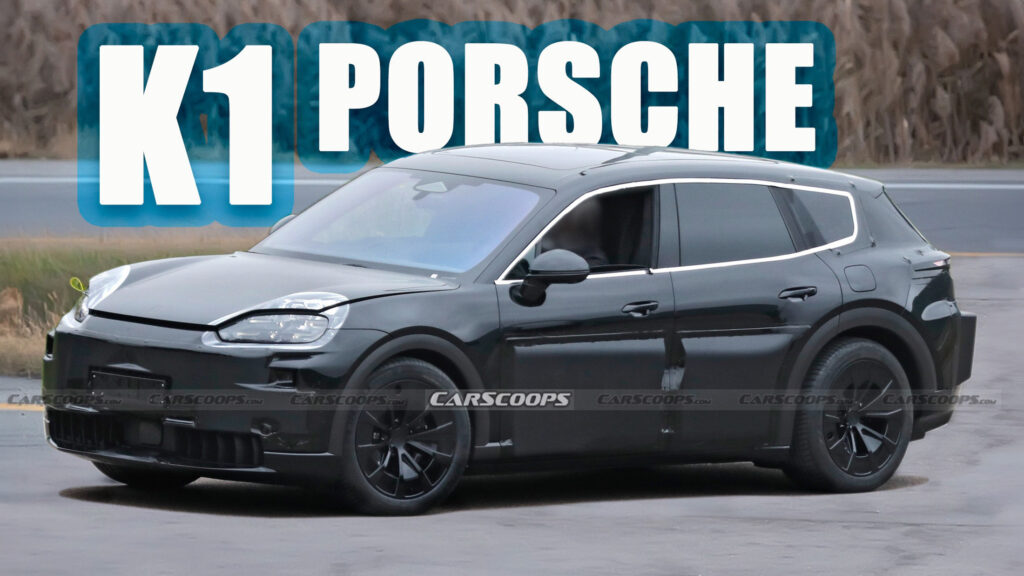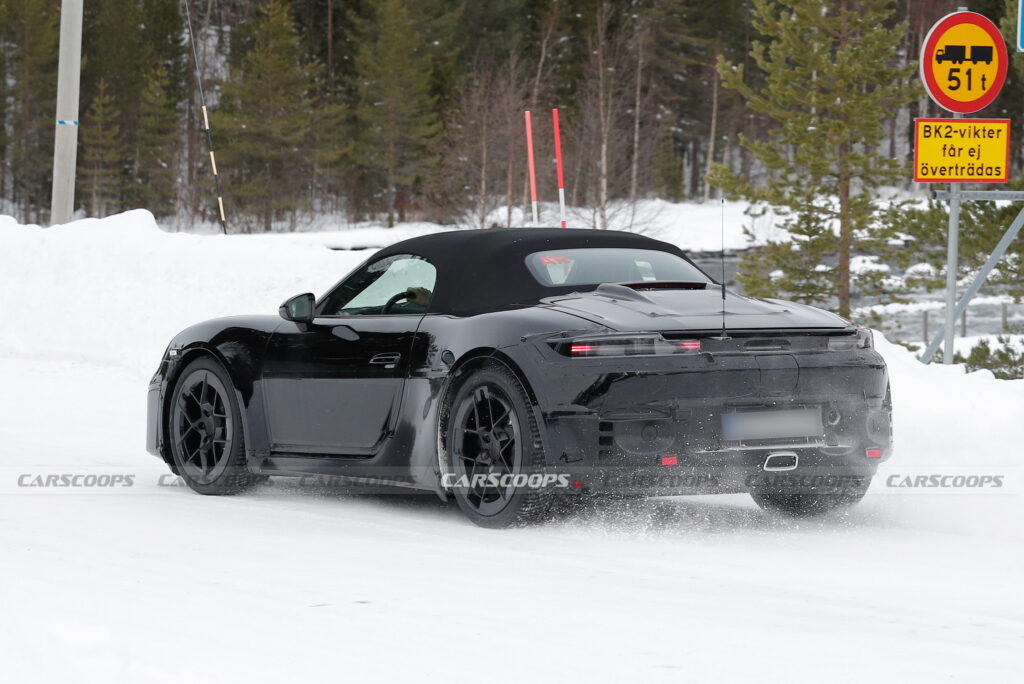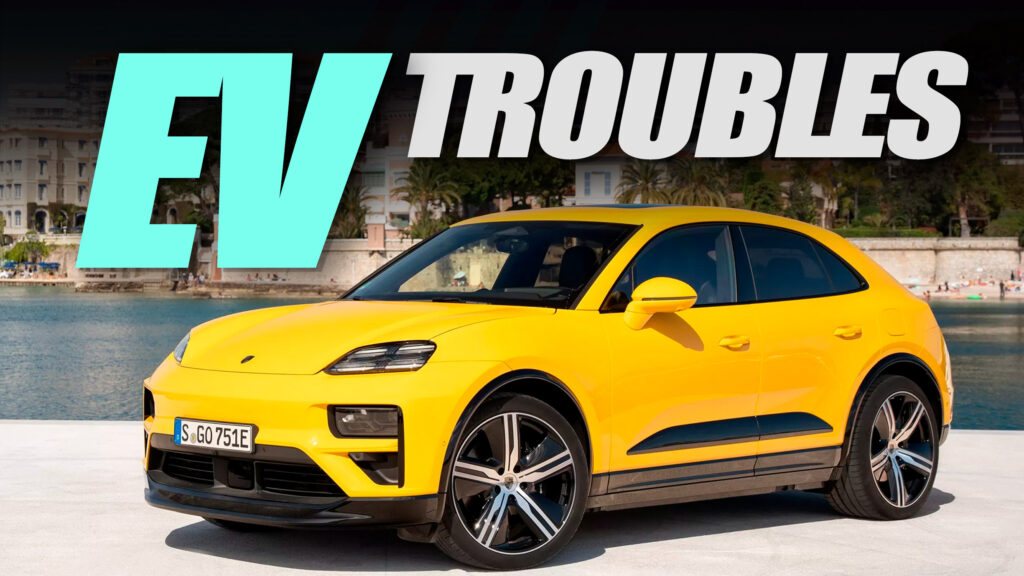- Porsche reportedly struggles to match the dynamics of gas-powered 718s with all-electric models.
- The seven-seat K1 electric SUV may need redesigning to support combustion engine compatibility.
- Sales declines of the Taycan and Macan challenge the brand’s push for electrification by 2030.
Porsche wants 80% of sales to come from electric vehicles by 2030, and while its ambition should be applauded, it’s allegedly facing challenges in electrifying its popular line-up. This may prompt an interim policy where it will continue selling its combustion-powered models for longer than initially planned.
One project facing particular difficulties is Porsche’s overhaul of the Cayman and Boxster, transforming the two iconic mid-engined sports cars into EVs. A German report says Porsche is having trouble matching the driving dynamics of the outgoing ICE models. It’s also facing an uphill battle perfecting the battery chemistry.
Read: Porsche Changes EV Plan, Will Give Electric Models ICE Powertrains Too
Automobilwoche reports Porsche has asked battery supplier Valmet Automotive for frequent changes but is unwilling to pay in full for them. These challenges may prompt the carmaker to further delay the launch of the upcoming electric Boxster and Cayman model family.
It’s not just the Boxster and Cayman that are posing problems. Porsche had planned to launch an all-electric Cayenne in 2026 but this project could be further delayed. Porsche has also spent several years working on a new seven-seat SUV to sit above the Cayenne, known as the K1, but the timeline for the new SUV could be altered, too.
The report states Porsche wants to see if the K1 – originally developed as a pure EV – can be modified to adopt a combustion engine. This may necessitate a switch from the VW Group’s Scalable Systems Platform (SSP) to the same underpinnings as the current Cayenne.

Poor sales and increased competition
Slow sales have contributed to Porsche second-guessing its electric plans. European sales of the Taycan are down 52% this year to 7,548, and the all-electric Macan isn’t trading in the volumes it hoped for either, shifting just 6,377 units this year. Lackluster demand could force Porsche to move Taycan production from Zuffenhausen to its main plant in Leipzig.
Porsche sales in China are also down 29%, and it’s lost ground to local competitors who offer similar performance at cheaper prices and with better digital tech.
More: Porsche To Sell ICE Macan In The US “For The Foreseeable Future”
“Before, their brand power was undisputed, but now Chinese consumers are looking around and finding other options that exist,” Gartner analyst Pedro Pacheco told Auto News. “The unavoidable reality is that battery-electric vehicles achieve top performance in a much more cost-effective way. Walking away from EVs means walking away from China.”
“China sets the pace for the future of premium cars,” he added. “Brands that fail to excel in software and EV performance will not only lose market share in China but face similar issues in Europe and the U.S. over time.”




